This is the second part of a three-part series. The first post dealt with scintilating topics such as what I'd change with RECO, land transfer taxes, and pre-construction sales.
Today I'll have my sights set upon some stuff that really cheese people off - like bidding wars and bogus square footage claims.
4) Bidding wars
Who likes blind bidding wars? Sellers do. Seller's agents do. But in a transaction you will have exactly one selling party, whereas you might have dozens of interested buyers. So the frustrated people usually outnumber the happy ones. Here's some things I'd change that may make some listing agents unhappy...
i) Cap the amount a property could sell for over list price
Here's an example of an east end semi-detached house right near Broadview & Danforth that sold last fall. When it was listed there had been two sales of semis on the same street within the last month. The first was a "Calling All Renovators" house with no pictures that was sold for $1,058,000 (listed for $749,900) and the second looked to be well-maintained, was tastefully decorated (if a bit bland) and sold for $1,551,000 (listed for $1,099,000). Again, all on the same street. It's a short street and from the lowest numbered one to the highest is a 210 metre walk per Google Maps.
So the one that per the listing "Needs A Total Renovation" sold for $1,058,000 and the other one sold for $1,551,000 all within the last month so what does this next one hit the market for?
All of $985K. As you see, it went for over $1.3 million. There was zero chance it was selling for under a million. But I'm sure several interested parties with $1 million budgets reached out to their agent just to ask to go see it, or ask if it would sell for over a million bucks. But how many others with $1.1 million budgets spent time looking at the pictures and read the listing description, or went to the 2-4 PM open houses on Saturday or Sunday? Or how many with $1.2 million budgets called their agent and had her show them the place?
How many offers do you think it got? It was professionally staged (even had the for-some-reason-still-a-thing teepee in the basement) so let's just pick a number and say 10. (I would not at all be surprised if was in the high teens.) Let's say that all of the bidders on this four-bedroom house were couples. And one of them went to the bank to get a bank draft from a teller. And the teller had to get their supervisor's signature. And they of course had an agent. And the agent called the listing agent's office to "register" the offer. So that's 6 people people engaged for every bid. But how many of those bids were not even competitive, say, falling under the $1.2 million mark? Let's pretend there were 4 that fell in the $1.2 to $1.3 million range, and 6 below it ($985K to $1199K). So just with the 6 bidders that had no chance, that's 36 people who wasted time (from 30 seconds of the teller supervisor's time, to a few hours of the bidding agent's time (communicating with the listing agent, performing some due diligence, and writing up the offer, getting it signed, and submitting it). All just because this listing had some artificially low list price. Now add on all the people with budgets less than $1.2 million that visited the property at the open house and/or with their agents. To me that's a problem.
What's my solution? I say cap the sold price at 110% of the list price. So now this agent isn't going to goof around at $985K because that would cap out at $1,083,500. Maybe they would list at $1.2 million. That would've set a cap at $1,320,000 which isn't much more than it eventually went for. But maybe they were confident of the $1.3 million all along so they'd maybe list at $1,250K which would give them some buffer to $1,375K. If they went with the $1.2 million now maybe they've only got the 4 offers but they are all pretty competitive. You've probably got reduced foot traffic at the open houses too (remember those?). I mean you're still going to get nosy neighbours, but those $1 million budget people aren't going to rearrange their Saturday plans to go visit this out-of-range property.
So in my proposal what happens if two bidders submit the maximum of 10% over? Say in this case it was listed at $1.2 million and two bidders went straight to the $1,320K max. They would both be given the option to increase their amounts or adjust stuff like closing date or whatever. Say one person held at $1,320K and the other went to $1,330K (assuming it's still blind bidding, for now). So what happens to the extra $10K over the cap? Well, the seller won't get it (and the listing agent's commission will max out based on the $1,320K cap), as 100% of it will go towards affordable housing in the City of Toronto - whether that be one of several programs, or towards the Toronto Community Housing Corporation's huge repair backlog.
For what it's worth, I was told by industry veteran Robert Ede that he had a similar idea a few years back (see below tweet). He proposed that anything selling for over 112.5% of the listing price would cause the listing brokerage office ("LBO") to get zero from the transaction. Even harsher than mine. But I like my affordability component, and keeping it a bit tighter, at 10% (which also makes it easy for anyone to calculate in their head). He said the idea didn't go past his blog, but it's good to know others aren't into this game either. Maybe his is better because it doesn't harm the seller's pocket book. You could donate that brokerage's take to the affordability programs. All this might make sellers (and especially agents) look at bidding wars as being a riskier strategy so maybe we would see less of them.
ii) Put in place some standards around how bidding wars are run
Every agent runs things differently. I think adding some structure would increase transparency and cut out a lot of b.s. Let me explain how these things typically run. In the morning of an offer day, the listing agent will send an email out to all of the agents that showed the place and give some guidelines as to how the offer night will be run. I should say, the good agents do this. And the better the agent, the more clarity in the instructions, is what I find.
Here's a behind-the-scenes story from early in my career. Some agents I had helped out with a listing allowed me to sit in on an offer night (with permission of the seller, who I had become friendly with when we were preparing the home for sale). There were 9 offers for the home. Let me mention at this point that practically all listing agents tell the buyer agents to bring their "best offers" and that if "things are close" they may have the "opportunity to improve their offers." Remember, all of the buyer agents only know the total number of bids; they aren't permitted to know any details of the other bids (e.g. dollars).
What I've found is that agents' definitions of "close" vary a hell of a lot! So, this house with the 9 offers was listed around $1350K and the range in bids was $205K. You usually find several clusters in the bidding. In this case I found the clusters to be:
- 2 in the upper $1300s
- 2 in the mid-$1400s
- 4 in the lower $1500s
- 1 out in front in upper-middle $1500s
The listing agent discarded only the two lowest bids (the lowest one also had a home inspection condition - seems like there's always an agent like that with a pure garbage offer - and they're often the last one to submit). They then extended the "opportunity to improve" to 7 of the 9 buyers, who were a total of $135K apart. The agent's justification is that he'd seen some really large increases from first to second bids before. To be fair, two of the re-submitters increased their offer by over $100K, including one of the ones in the third tier, the one in the mid-$1400s (but that only moved them to 4th in the final standings). But if you've got people improving by over $100K, then what the hell is their definition of "best offer"? Or maybe you haven't done a good job of showing you were serious about the "best offer" part.
To me, if I had made myself clear about "best offer" (and I try my best to), then maybe you go with the top one and be done. At most I'd only invite back the top 5 since those 4 were clustered. Or, really the people in the second cluster, and then if they came up short of the top bidder in round one then things would be over. But some would allow the top bidder to bid against themselves. And that's what I don't like. There's too much variance in how agents conduct these, and while I find it shady to make somebody bid against themselves, I've seen it happen. What's "close"? Is it 5 percent? Is it 2%? I'd lay down some clear rules that everyone in Ontario has to follow when handling offers.
Heck, you can make a strong argument for ending the whole practice, but I'm assuming it's not going away any time soon so at least lay some ground rules.
To me a couple of easy improvements are:
1) Only people within a certain percent of the top bidder can be invited to re-submit (say for example, 5%). This cuts down on the number of people who's time is wasted in this process, and it makes things less frenzied when there are less bidders for the second round (hopefully keeping prices slightly more sane). It also takes out game-playing by buyers, because they are more incented to bring an actual "best offer" if they want to better their chances of being within 5%. If there was a "5% Rule" in effect there would only have been two bidders in the second round for this property (with three just missing the 5% cut). This does go against not knowing anything about other bids because you'd know you're within 5% of the leading bid. But with large dollar values that's not super helpful (in this case they'd know they were within around $75K). You also don't know if you're 5% ahead in first, or 5% behind in fourth (or anywhere less than 5%), so still a lot of mystery.
2) Top bidders can not bid against themselves. Again, it goes against not knowing anything about other bids because if you're being asked to bid again you know you're not top at the moment. But I think everybody should be able to live with that. Seems like this would be hard to enforce, but just making it a rule should stop some agents on the fence from considering it.
5) TRREB's Stratus MLS®
What exactly is a Multiple Listing System? Well the Canadian Real Estate Association (CREA) describes it as:
MLS® Systems are cooperative selling systems operated by real estate Boards and Associations in Canada. They are accessible to REALTOR® Members of those Boards and Associations who have agreed to represent your interests and share remuneration from the transaction with a cooperating REALTOR® Member. MLS® Systems contain detailed information and numerous search tools, all designed to match people with the properties that fit their exact requirements.
CREA goes on to point out that its own REALTOR.ca website is not an MLS® System, but rather "an advertising website that CREA created to give REALTORS® across Canada greater listing exposure to a national and international audience. The listing content advertised on REALTOR.ca comes from the various MLS® Systems operated by Real Estate Boards and Associations across Canada."
To me, saying MLS system is like when people say ATM machine or SIN number. That is, redundant. But anyway, here when I refer to "the MLS" I'll be referring to the back end MLS that TRREB supplies me access to because I pay my membership dues. It has Available listings (New, on a Price Change, or Sold Conditionally), and Unavailable listings (Sold, and Terminated/Suspended/Expired). Here's a screenshot of what the initial Search section looks like. If you wonder why most of my statistics are grouped into Freehold and Condo ownership types, you can see below it's simply because that's how TRREB's MLS has grouped them.
The system TRREB uses is called Stratus. There are other platforms available, for example Matrix is one a lot of other real estate boards in Ontario use. Apparently there's a lot of political bullshit that goes one with board choosing one platform or another, but that's outside the scope of this blog post.
To give you a peek at how I look up listings, here is how I'd find detached bungalow listings over $500K in E06 Birchcliffe-Cliffside. There are a bunch of parameters to choose from and you either drop-down or fill-in whatever you want to narrow your search. You can see at the top that I've got it narrowed down to 7 properties.
Okay, now you have a bit of flavour, so here are some things I'd improve.
i ) Automatic neighbourhood generation
Don’t let agents choose what neighbourhood a property is in – have it automatically map-driven. See the condos below? They’re at 150 and 170 Sudbury Street.
It’s clearly within TRREB’s Little Portugal boundaries. And yet if I look at the 79 completed leases in the last 24 months in those buildings, only 59 were correctly classified as being in Little Portugal. The 20 mislabelled leases had 15 in Niagara, 4 in Trinity-Bellwoods, and 1 in Waterfront Communities C1 which isn’t even in the map here it’s so far away. Every listing requires the address. The “Community” (as TRREB calls it, or neighbourhood as you or I would call it) should be automatically generated from this, and not give agents a choice to enter it. Because when you give agents choice you create the opportunity for this:
You’re looking at sales in the last year in “The Beaches” – or at least what agents have entered in as The Beaches, even if many of them are really in neighbouring neighbourhoods. One of the ones in the upper left is actually in Greenwood-Coxwell because it’s on the west side of Woodbine, so not even an adjacent neighbourhood. It’s agents trying to use the cachet of a popular area for their own listing. I mean, cool by me if you want to refer to your East End-Danforth listing as “Upper Beaches” in your description, but don’t mess with the map, man. What this does is mess up sales history. Say I’m looking to price houses in The Beaches (real one) and I dig up all the comparable sales in the neighbourhood. Well now the results are misleading and I have all of these garbage ones to filter out. This fix would cut out human errors and humans playing games.
ii) Create a field for offer dates
There’s currently a spot for agents to enter an open house date. The public can see that information right in the listing. I’d like to see the same for offer dates. I get so many messages from my clients that are just "Is this holding offers?" Or, "At this price it's probably holding offers but can you confirm?" Or, "What's the offer date on this?" Why don't we just cut the crap and take the secret "only agents can know" out of this and make this info public? I think it's a holdover from the old school mentality where agents were the gatekeepers of all of the information and they thought that's what made them valuable, or because they pay a lot to TRREB in fees they should.
I've heard a counter argument that "Well, sometimes the offer dates get moved up if there's a bully offer." Realtor.ca only batches information overnight so if somebody submitted an offer at 10AM on Thursday and the offers were originally to be presented at 7PM next Tuesday but now they are moved up to 7PM tonight (Thursday) then the person logging on to Realtor.ca at lunch today is going to miss out. But then what was the chance they were going to be able to see it that night after work, go get a bank draft, and have their agent perform their due diligence and write up an offer all before 7PM anyway? And if they really wanted to see it tonight after work they'd call their agent at lunch and the agent could log-in and see the up-to-date information on the offer date anyway. It's just a lot more above-board to share this information with the public. Then they'd know the list price they're looking at is just a "marketing price" and not a legitimate expectation.
iii) Create a field for number of offers
Tagging onto the above one, I’d like to see a related field where the agent enters how many offers there were if there was an offer night. I’m fine with this being a non-public field. It would be helpful when reviewing comparable listings to see “Oh that one sold with 10 offers” or “That one sold with 4 offers.” If it was fairly recent and it's relevant to something I'm working on, I’ll call one of the agents involved in the sale to find out, but I see no reason why this shouldn’t be kept for historical purposes.
iv) Create assignment sales field
There should be a field for assignment sales. What is that? They’re a specific type of transaction, where somebody that bought pre-construction is trying to flip the property before the builder transfers ownership. It’s basically assigning the contract to buy the place at a certain price. They require a lot of cash for the buyer to close so it’s a very specific kind of buyer also. Right now to find them I have to type “assignment sale” in the comments section and hope the agent used that exact wording (and had the correct spelling). There are 186 among 416 condos as of writing. Or maybe there’s more, I can’t be certain. But make it a field and that takes care of that.
v) Create fields for hard lofts and soft lofts
Right now when an agent is setting up a listing, they can choose a "Type" of condo (choices include Condo Apt, Condo Townhouse, Co-op Apt, etc.) and then a "Style" (choices include Apartment, Stacked Townhouse, etc.). If you want to notify people you have a loft to list, your choices in Style are Loft, Industrial Loft, and Warehouse Loft. Nobody uses Industrial Loft and Warehouse Loft. That's not an exaggeration - in the last 24 months as of writing there have been zero listings under Industrial Loft or Warehouse Loft. That leaves loft, but the problem is that there are hard lofts (authentic conversions of old warehouses and factories) and soft lofts (constructed more recently with features similar to hard lofts like tall windows, concrete floors, or exposed duct work). So if I have a client that wants an authentic hard loft, I have to search for lofts then comb through a bunch of stuff that's not hard lofts. Right now in the 416 there are 83 "lofts" but only 25 of them (30%) of them are hard lofts. Since hard loft and soft loft are the terms agents use, and nobody uses "industrial loft" or "warehouse loft" I say just delete those two choices as well as "loft" and make the two choices "hard loft" and "soft loft."
vi) Make ability to flag a listing
There are a lot of bogus things that happen in a listing. Somebody claims a condo's square footage is larger than it is (I've seen accompanying floor plans contradict what the agent put), or a place is in a neighbourhood it isn't (though as the King I already fixed that one above), or a condo has a "second bedroom" when it's really a den, or a den when it's a nook. There are lots of little things like this that happen all the time. Sometimes it's not even agents trying to game things, it's just honest errors like they enter the wrong PIN (property identification number) so you're taken to the wrong place when you look up the records. Make a button to flag a listing, which brings up a field asking the reporter what is wrong. TRREB then has somebody verify the error. If it's wrong then the agent has 24 hours to fix it and is fined $100 for something they don't gain an advantage from or $500 for something they do (even if it was an honest mistake). Typographical errors are excluded. Also, I'd escalate the fines so that they double for each subsequent occurrence. If you're making a bunch of careless errors in your listings or you're often fudging information the public and other agents are relying on, you should be incented to stop. And it should help offset some of the cost of the time for TRREB people to follow up.
vii) Stop the capitalization insanity
I'm sure you've noticed descriptions come out like "The Den Can Be Used As A Second Bedroom With A Modern Glass Barn Door." Why Is Every Word Automatically Capitalized By The System? Agents don't enter it this way, the MLS converts it to that. You also can't capitalize letters after the first one in a word so you get stuff like Bbq and Mpac. Just fix that garbage. I see zero benefit for converting everything to start with a capital.
6) TRREB Policy changes
True some of the ones I'm about to list are related to the MLS, but they are more about how agents are allowed to use the MLS than the Stratus platform's own limitations.
i) No re-listings for 90 days
Make a rule where agents can not re-list the same property within 90 days. I recall someone telling me some board somewhere had a 60-day rule, and I considered softening to that number, but hey, I'm the King! This would put an end to the practice you see of somebody trying a bidding war, having it be unsuccessful (i.e. not obtaining their secret “reserve price”) and then re-listing a the higher price like nothing happened. It also happens when a place has sat on the market for 2 weeks or a month and then the agent terminates and re-lists to keep the listing looking fresh (so people don’t think “It hasn’t sold in 3 weeks so there must be something wrong with it.”).
The public may not see that (though now they can with websites like HouseSigma), but agents have the capacity to know. But up until recently agents had to do a lot of manual looking up to find prior listings. It was just a year or so ago that they introduced an “Address History” button to the MLS for agents to see prior listings. (Before the button I actually just used to pop on HouseSigma to look up history because it was way faster than me doing it manually in TRREB's MLS.)
The reason I dislike re-listings are because it’s a game, it's deceitful, and plus it messes up several statistics. A 2012 MIT study concluded there was a definite lowering of sold prices in houses that were forced to show the real days on market after a policy change by the listing service in Massachusetts.
One statistic befouled is “new listings”. If a listing came out March 5th, then got re-listed on March 13th, and again on March 28th it would count as 3 “new listings” for the month, which is dumb. Any other statistic that is based on new listings is also messed up, like Sales to New Listings Ratio (SNLR), which is a measure of market balance. Also Days on Market (DOM) is only based on the listing that is attached to the sale. So if a place was listed for 30 days, then another 30 days on a second listing, then sold 3 days into its third listing, the DOM would officially be 3 and not the 63 it had really been “on market” and available for sale. TTREB started a special report showing the difference between Listing Days on Market (LDOM), their primary stat, and Property Days on Market (PDOM), which takes into account the re-listings. They didn't start releasing the information until March 2019, but for the 10 months of 2019 they tracked, the whole PDOM was 43% higher than the LDOM (33 vs. 23 days). But if you know LDOM is bad, why don't you just use the better one? So there's 3 stats that get screwed up just by allowing the practice of willy-nilly re-listings: New Listings, SNLR, and DOM.
ii) Standardize square footage and make it a mandatory field
For condos, it is a mandatory field (it wasn’t always) - at least as a range, but for houses it's not. But there are still a lot of ways to improve things for consumers (and real estate agents).
a) Add smaller ranges
Here are the condo bands currently:
0-499 sqft
500-599, then by 100 sqft bands up until 900-999
1000-1199, then by 200 sqft bands up until 1800-1999
2000-2249, then by 250 sqft bands up until 4750-4999
5000+
I don’t mind keeping these bands for continuity, though I would make the smallest one 0-299 sqft and add a 300-399 and 400-499 to account for micro condos and smaller studio apartments. Yes, these are real. Here’s are the floor plans for a 289 sqft unit at Smart House on Queen St. West. It’s basically a hotel suite, with a better kitchen and no couch (or no bed, take your pick - okay you could get a pull-out like this diagram).
b) Make mandatory for houses
Right now there are no requirements for agents to list square footage for houses; it’s an optional field. I’d guess less than half of listings have it, with larger homes being more likely to brag about it and smaller houses more likely to omit it. I just took a look at current listings in C01 and only 39% of the 116 listings entered the sqft range. I checked E03, which has a bunch of modest semis) and it was 34% of the 92 listings. I checked C12 where there are a bunch of monster mansions and it was 37% of the 132 listings. So I think it's safe to say that less than half of listings are using it. There are also sqft bands for houses and they’re understandably wider than condos:
< 700
700-1100
1100-1500
1500-2000, then by 500 sqft bands up to 3500
3500-5000, then 5000+
Those are exactly as written in the MLS. Weird to me they use 0-499 for smallest condo grouping, yet not 0-699 for freeholds (written as <700 instead). Also weird that they allow an exactly 1500 sqft place to qualify for two different categories, while the condo way would've used 1100-1499. I mean a miniscule amount of listings would be in that position, but the inconsistency is hard on my OCD accountant side.
c) Mandatory actual square footage figures
You know what would be better than ranges? If they would require actual square footage figures! Here’s what the Real Estate Board of Greater Vancouver uses:
This means that people can calculate actual prices per sqft, which is very important for condo pricing. I'd keep the ranges we have currently (or my new ones, I mean), and then add a field for actual square footage. Right now some people squeeze it in to the square footage source field, like this:
I mean, I'd love to go all the way from "zero to sixty" to make it like Vancouver, but even a real mandatory total would be a big step. This leads me to my next point...
d) Standardize square footage
There are two things I question when I see a square footage figure here in Toronto, because agents tend to “embellish” things. The first is what they're including in their totals. For houses, professional standards indicate it’s only appropriate to include above-grade space that is heated (e.g. not a three-season mudroom, or the basement). For condos, I’m finding more and more agents are trying to include the balcony space in the total (pretty obvious that only indoor space should be counted; houses don't count their front porches or back deck). Here is one such joker (that should be listing this as 500-599 sqft):
The second is whether the measurement is interior (drywall to drywall) or an exterior measurement (to the outside of the brick of exterior walls and to the halfway point of any party walls). Believe it or not, the industry standard is the exterior measurement. Most of the square footage measurements generated by those 3D virtual tour cameras are using interior dimensions.
It’s important to note the difference methodologies because the numerical difference is pretty large. In my own house, it’s about 13% above-grade and 17% in the basement (thick foundation walls) so a 14% difference in the total for the whole house. That would make a 2,100 exterior sqft house become a 1,806 sqft house, which I think people would have different perceptions of.
Below is an actual example from a condo. The interior measurements are 71 sqft smaller than the exterior, or 10% shrinkage. Kudos for this agent for showing both (though strangely in the listing it says "710 + Balcony As Per MPAC" so they may not have even noticed that the 3D virtual tour camera plans spit out the square footage). I don't mind if people note that the unit is 710 sqft + 100 sqft balcony for 810 sqft of "livable space" (same with basements) in the listing description as long as it's broken out and it's still properly classified as 700-799.
The Vancouver model from above is great because it’s clear as to what is above and below grade. But I can’t tell if it’s interior or exterior so it could vary from listing to listing (though I'm sure vast majority using external as it's pretty standard and sounds bigger so more to the seller's benefit). That’s why I’d standardize it. Really people care about what’s inside and if their furniture would fit. Nobody walks into a room and thinks “It’s about 115 square feet (if I account for the thickness of the walls).”
e) Third party square footage
Now that everybody will be providing square footage, I want agents to be required to use an accredited third party, not themselves with a measuring tape and questionable motives and mathematical skills. Agents would have to hire from a list of companies approved by TRREB. In order for a company to get on the list, TRREB gets some processing fee and checks the company’s credentials before approving them. And where the "sqft source" field is on the MLS listing, the company must be listed there.
Or better yet, floor plans must be provided for all listings, with the company listed on it. The same agents that cheap out on professional photography (instead taking poorly lit pictures on their cellphone cameras) will likely scoff at being forced to pay $150 or $200 for professional floor plans, but with a commission on even a $400K condo being $10K, everyone should be able to afford it. I would allow re-using of prior floor plans, as long as the company is marked on the plans and is on the accredited list. Original floor plans from the builder wouldn't work because they use exterior measurements (to maximize how large the units sound) and also they are allowed to be built within tolerances so finished units might come out smaller in real life than on the plans from the sales centre.
For the other parts of this series of "8 things I'd change" you can find Part 1 here and Part 3 here.
About Scott Ingram CPA, CA, MBA
Would you like to make better-informed real estate decisions? I believe knowledge is power. For that reason I invest a lot of time researching and analyzing data and trends in the Toronto real estate market. My Chartered Accountant (CPA, CA) side also compels me to perform a lot more due diligence on properties my clients are interested in purchasing. If you have better information, you should have less risk and be in a position to make better decisions for your hundreds of thousands of dollars.
Your home is the single largest investment you'll make - trust it with an accountant.





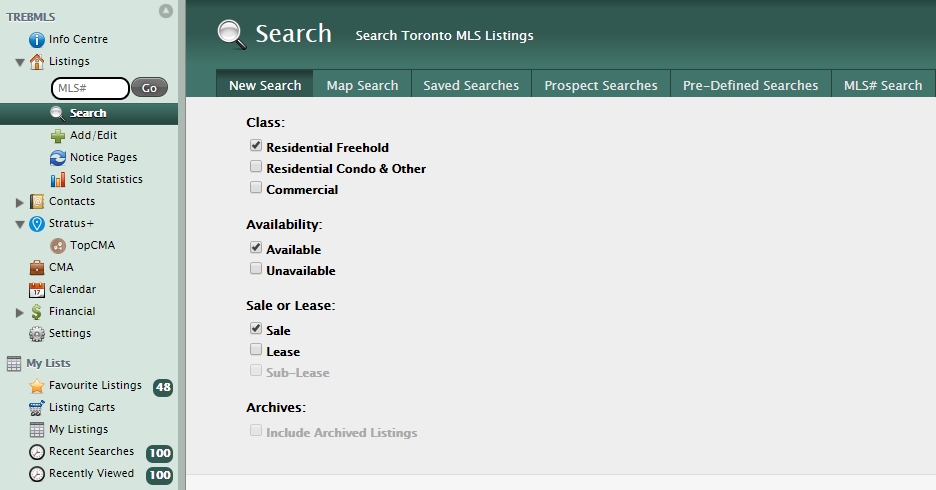
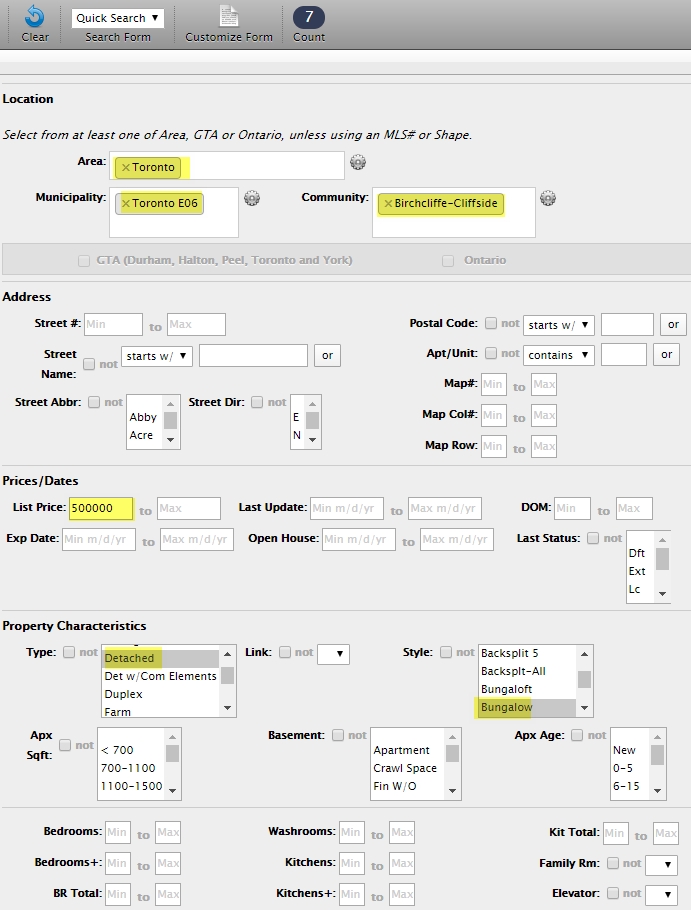
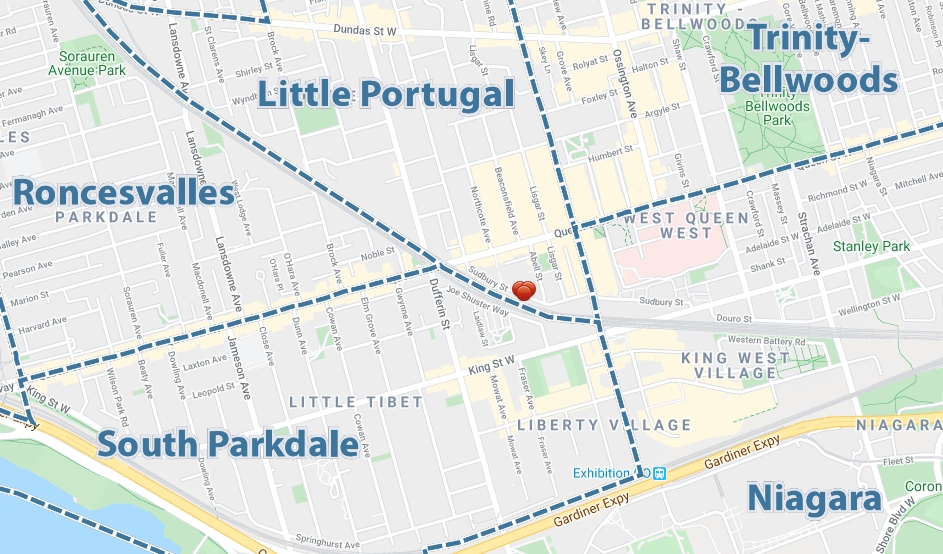
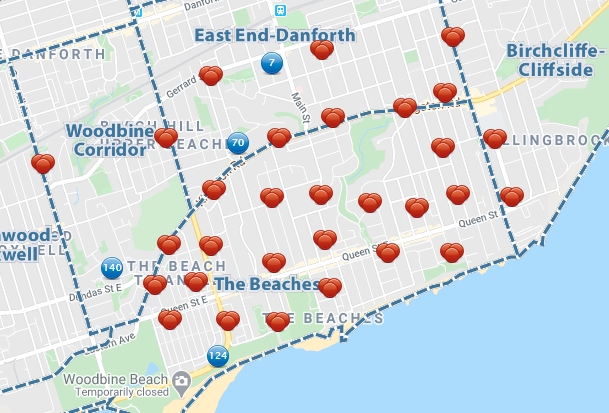
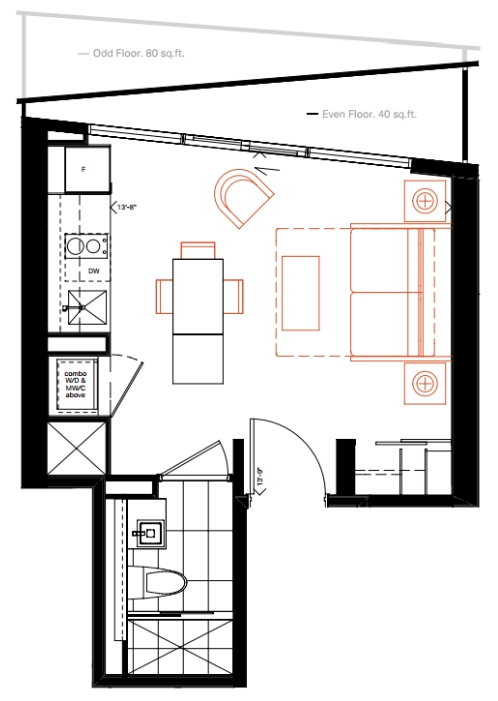
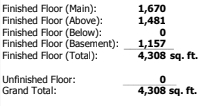


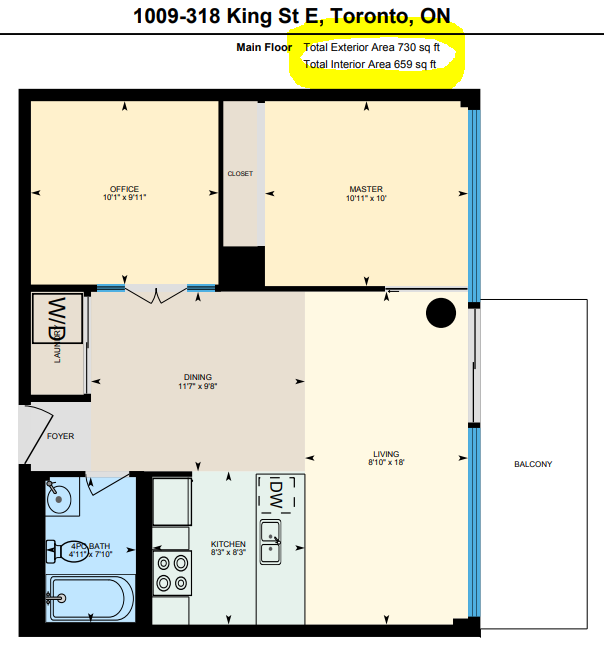

Post a comment